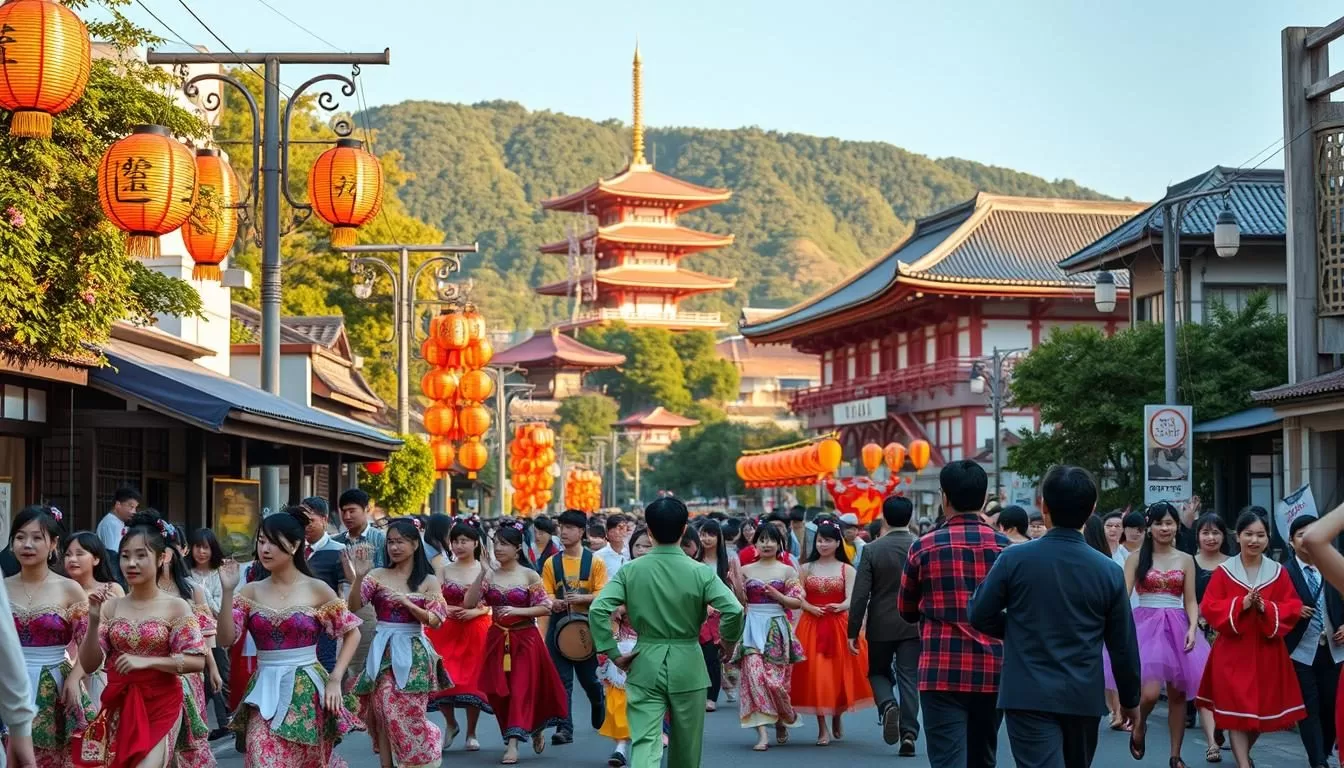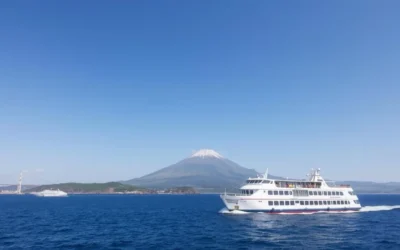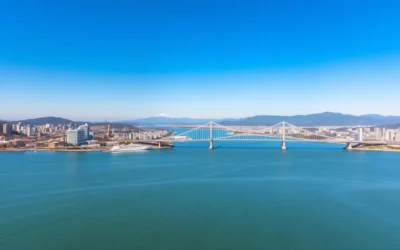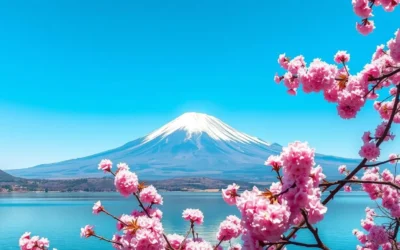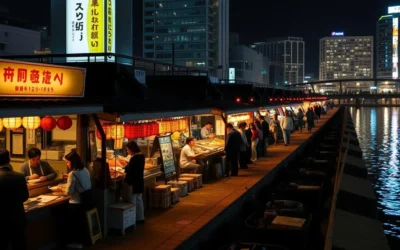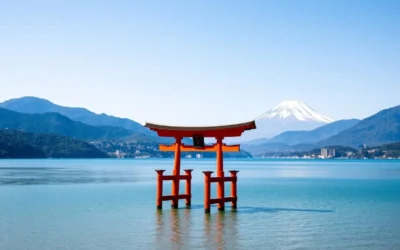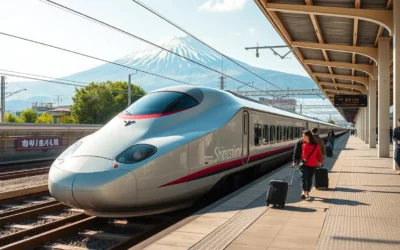✓ Accommodations✓ Flights✓ Rental Cars
Are you ready to immerse yourself in the rich cultural heritage of Fukui Prefecture? This hidden gem in Japan is home to numerous festivals that showcase the region’s unique traditions and history. As you plan your visit, you’ll want to experience the authentic Japanese culture that these festivals have to offer.
From ancient religious ceremonies to celebrations of seasonal changes, Fukui’s festivals provide a glimpse into the region’s fascinating past. By attending one of these events, you’ll gain a deeper understanding of the local culture and create unforgettable memories. With its unique blend of religious significance and community participation, Fukui Prefecture is a must-visit destination for any traveler looking to experience the authentic spirit of Japan.
Discovering Fukui Prefecture’s Cultural Heritage
Fukui Prefecture is a treasure trove of cultural heritage, waiting to be explored by visitors from around the world. The region’s rich cultural tapestry is woven from its unique history, traditions, and strategic location between the Sea of Japan and the Japanese Alps.
The prefecture’s cultural identity has been shaped over thousands of years, influenced by its history as the domain of the powerful Matsudaira clan during the Edo period. This legacy continues to be celebrated in the many traditions that are still observed today.
| Cultural Influence | Description |
|---|---|
| Zen Buddhist | Eiheiji Temple’s influence on local culture and traditions |
| Folk Traditions | Preservation of customs and practices passed down through generations |
| Samurai Culture | Historical significance of the samurai class in shaping local identity |
By experiencing Fukui’s festivals, visitors can gain a deeper understanding of the region’s cultural heritage and enjoy an experience that is both authentic and memorable. The relative isolation of Fukui Prefecture has helped preserve cultural practices that have disappeared in more urbanized areas of Japan, making it a unique destination for cultural enthusiasts.
Planning Your Festival Visit to Fukui
To make the most of your travel experience in Fukui, it’s essential to know when and how to enjoy its vibrant festival celebrations. The prefecture hosts a variety of events throughout the year, each offering a unique experience.
First, consider the time of your trip. Different festivals take place in different seasons, so identifying which ones you want to attend will help you plan your visit accordingly. For visitors, it’s also crucial to understand how to get to Fukui, which is accessible via limited express trains from major cities like Kyoto, Osaka, and Kanazawa.
- Discover the best times to visit based on the festivals you’re interested in.
- Learn practical travel tips for getting to Fukui.
- Understand the importance of booking accommodations in advance.
- Find out about local transportation options within Fukui.
- Consider combining your festival visit with other attractions.
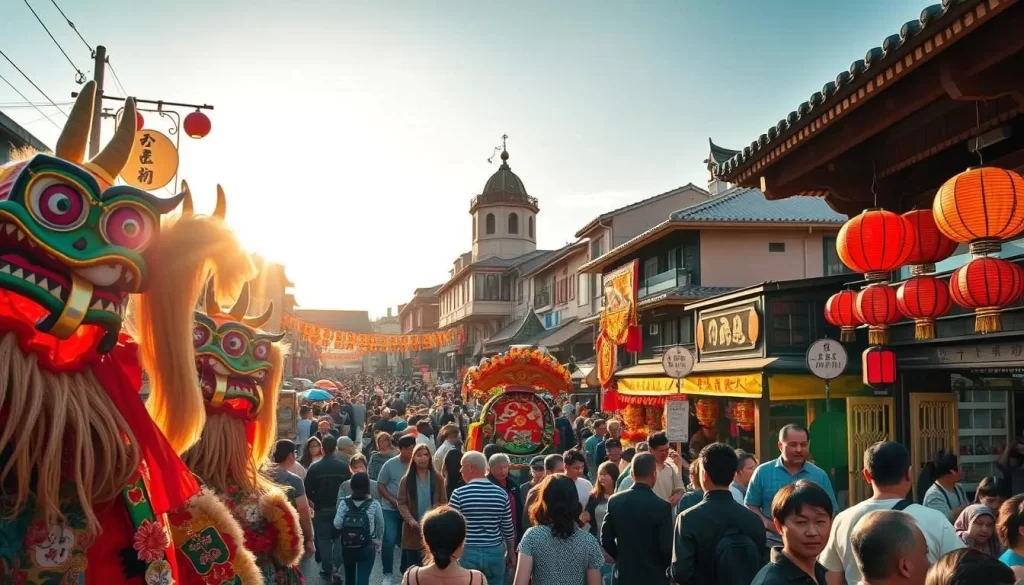
By planning ahead, you can ensure a smooth and enjoyable experience in this beautiful area. Whether you’re looking to participate in or simply observe the traditional ceremonies, being prepared will make your visit to this place truly memorable.
Winter Celebrations: January-February Festivals
Despite the cold, winter is a lively time in Fukui, with festivals that showcase the region’s rich cultural heritage. You can experience the unique traditions and celebrations that take place during this period.
Mihama Hiruga Underwater Tug-of-War
The Mihama Hiruga Underwater Tug-of-War, held in January, is a unique festival that takes place in the icy waters off the coast of Mihama. Participants engage in a tug-of-war while submerged, making it a fascinating spectacle. This event is a testament to the community’s spirit and resilience.

Katsuyama Sagicho Festival
The Katsuyama Sagicho Festival, occurring on the last full weekend of February, is a 300-year-old celebration that welcomes the coming of spring. The town is decorated with colorful tanzaku strips a week before the festivities. During the weekend, twelve temporary yagura towers are erected, hosting traditional performances. The townspeople create tsukurimono displays using everyday items, showcasing their creativity. The festival culminates on Sunday night with the Dondo-yaki bonfires along the Kuzuryu River, where visitors and locals warm themselves and even cook mochi over the flames.
Experience the vibrant celebration and enjoy the traditional performances and fireworks-like ambiance of the bonfires.
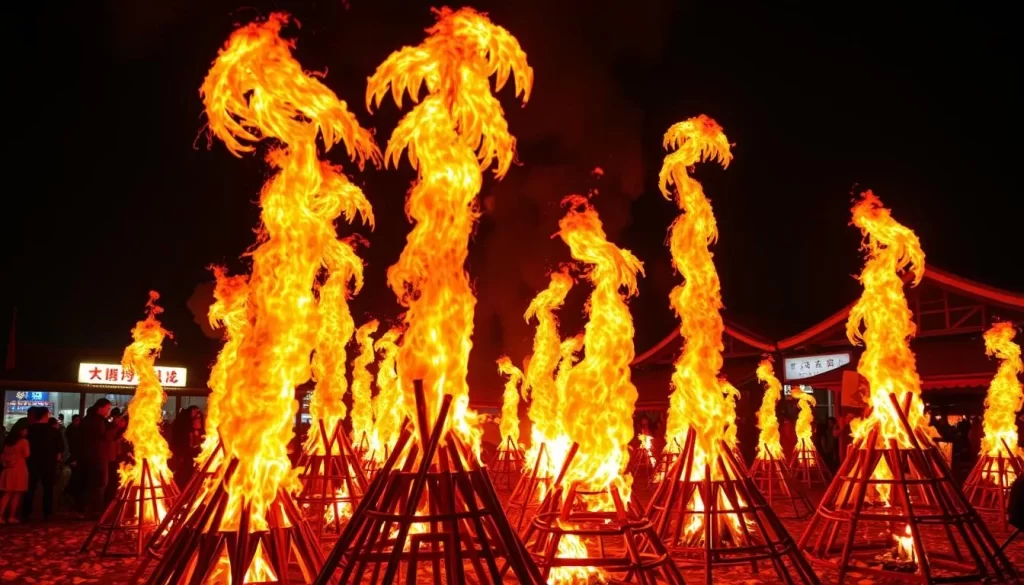
Spring Awakening: March-April Festivals
The beauty of spring in Fukui Prefecture is best experienced through its festivals. As the winter chill dissipates, the region comes alive with vibrant celebrations that showcase its rich cultural heritage.
Omizu-Okuri Ritual at Jinguji Temple (March)

In March, the Omizu-Okuri Ritual at Jinguji Temple is a unique event that highlights the spiritual side of Fukui’s culture. This ancient ritual, steeped in tradition, offers visitors a glimpse into the region’s deep-rooted customs.
The ritual involves the ceremonial drawing of water, symbolizing purification and renewal. It’s an experience that combines spiritual significance with the beauty of traditional Japanese culture.
Cherry Blossom Festivals Along Asuwa River (April)
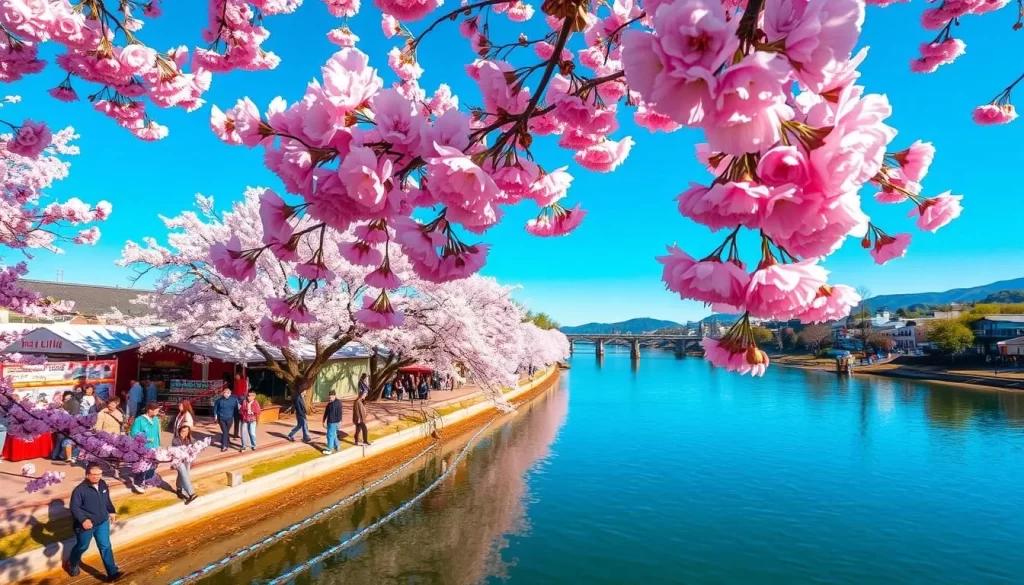
April brings the breathtaking cherry blossom festivals along the Asuwa River, a must-visit festival for anyone traveling to Fukui City. The river’s 2.2-kilometer stretch lined with sakura trees creates a stunning “cherry blossom tunnel” that attracts visitors from all over.
During the peak bloom, the trees are illuminated at night, offering a magical view that’s distinctly different from the daytime spectacle. The annual festival includes food stalls and festivities, making it an ideal time to enjoy Fukui’s famous sakura.
Visitors can enjoy hanami (flower viewing) and experience the local culture firsthand. The spring season in Fukui is a time of renewal, and the cherry blossom festivals are a perfect representation of this theme.
Golden Week and May Celebrations
May is a fantastic time to experience the rich cultural heritage of Fukui Prefecture. The region comes alive with vibrant festivals, showcasing its history and traditions.
Mikuni Festival: Samurai Floats and Traditions (May 19-21)
The Mikuni Festival, held annually from May 19-21, is one of the largest and most significant festivals in the Hokuriku region, boasting over 300 years of history. The town of Mikuni in northwestern Fukui is the venue for this grand event.
The festival is renowned for its magnificent floats, each constructed by different neighborhoods to depict figures from Japanese history or legends, standing as tall as six and a half meters. On May 20, these floats gather at a shrine along with a mikoshi portable shrine for a ceremony, followed by a grand procession through the streets of Mikuni, accompanied by traditional music played on shamisen, shinobue flute, and taiko drums.
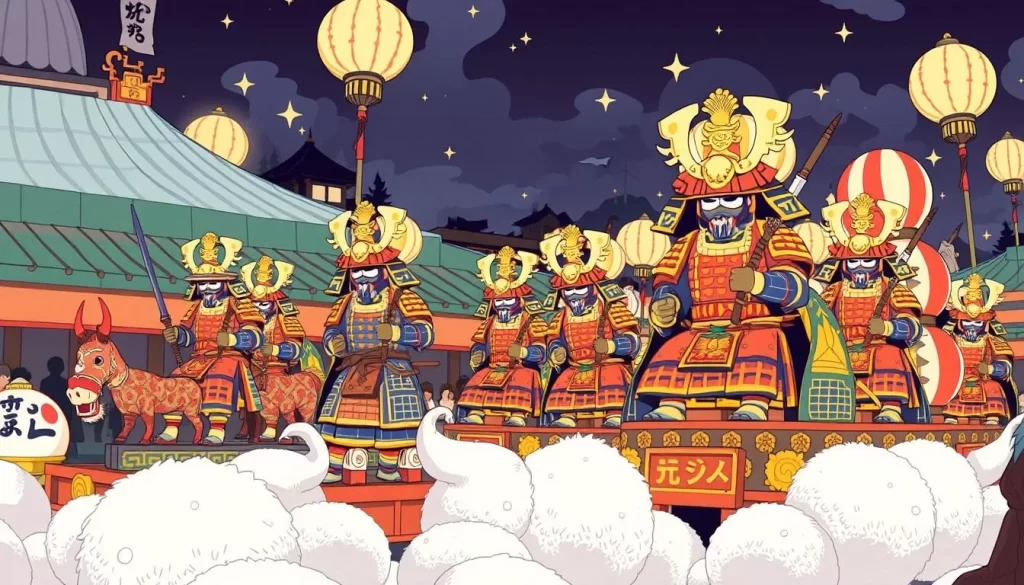
- Experience one of the Hokuriku region’s largest festivals with over 300 years of history, held annually from May 19-21 in the coastal town of Mikuni.
- Marvel at the impressive samurai-themed floats that tower up to six and a half meters tall, each constructed by a different neighborhood and depicting figures from Japanese history or legends.
- Witness the main event on May 20th when the massive floats and portable mikoshi shrine gather for a ceremony before beginning their grand procession through streets.
- Immerse yourself in the festive atmosphere filled with traditional music played on shamisen, shinobue flutes, and taiko drums that accompanies the parade.
- Discover how the festival transforms after 6:00 p.m. into a more intimate experience as the floats split up and travel independently through the narrow streets.
- Observe the fascinating logistics of maneuvering these enormous structures through Mikuni’s narrow streets, including the collaborative effort required to navigate around power lines and food stalls.
- Enjoy the festival food and shopping opportunities at hundreds of stalls that line the parade routes throughout the town.
- Learn about the historical significance of the samurai figures represented on the floats and their connection to the region’s feudal past.
Summer Festivals in Fukui Prefecture, Japan: Top Events to Check Out When Visiting
Fukui Prefecture transforms into a festival hub during the summer, with events that highlight the town’s history, food, and community spirit. You can experience the vibrant culture of Fukui by attending these festivals.
Toro Nagashi and Fireworks Festival (July)
The Toro Nagashi and Fireworks Festival in July is a mesmerizing event that takes place on a night when the sky is illuminated with beautiful fireworks. You can enjoy the serene atmosphere as lanterns are floated down the river, symbolizing the release of spirits. This festival attracts many visitors who come to marvel at the spectacle.
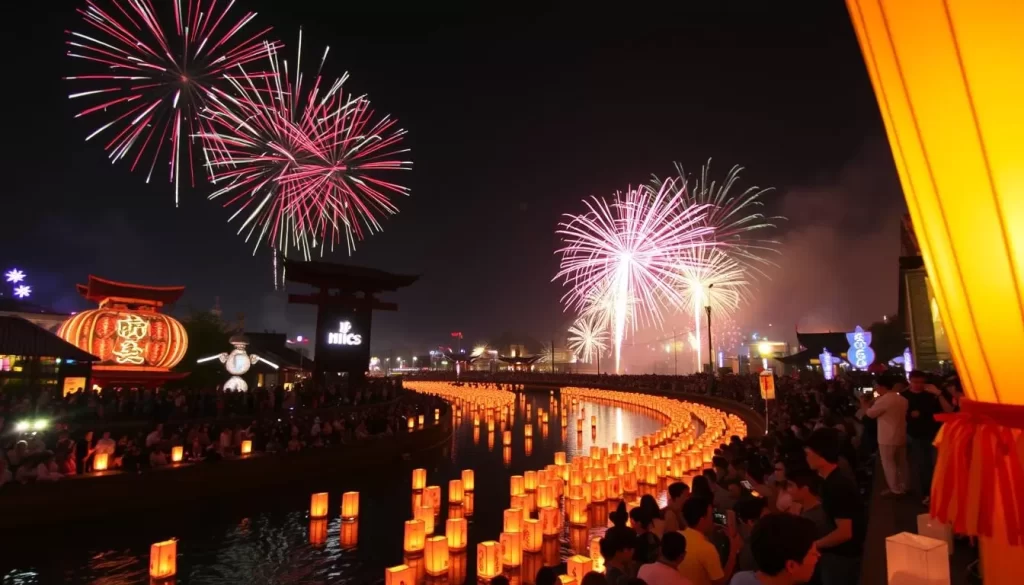
Awara Summer Festivals (August)
Awara Onsen, known as the “hidden hot spring of Kansai,” hosts vibrant summer festivals in August. You can immerse yourself in the local culture by participating in traditional bon odori dances and enjoying local food specialties. The town is beautifully illuminated at night, creating a magical atmosphere.
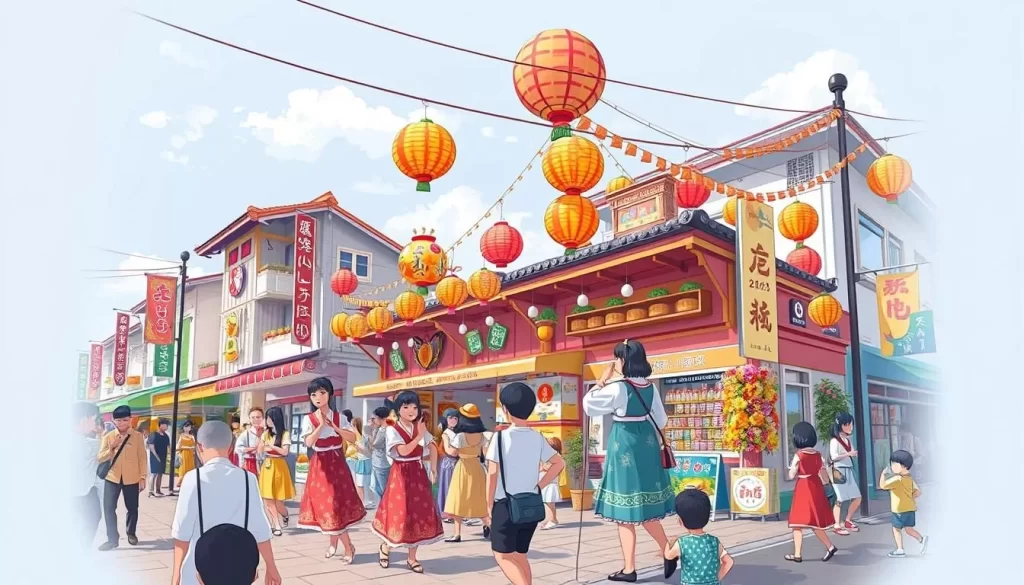
Autumn Festival Experiences
Visitors to Fukui Prefecture during autumn can enjoy a range of festivals that highlight the region’s Zen Buddhist heritage and natural splendor. One of the most significant autumn celebrations takes place at Eiheiji Temple, a renowned Zen Buddhist temple and a two-star attraction in the Michelin Green Guide Japan.
Eiheiji Temple Autumn Celebrations (September-October)
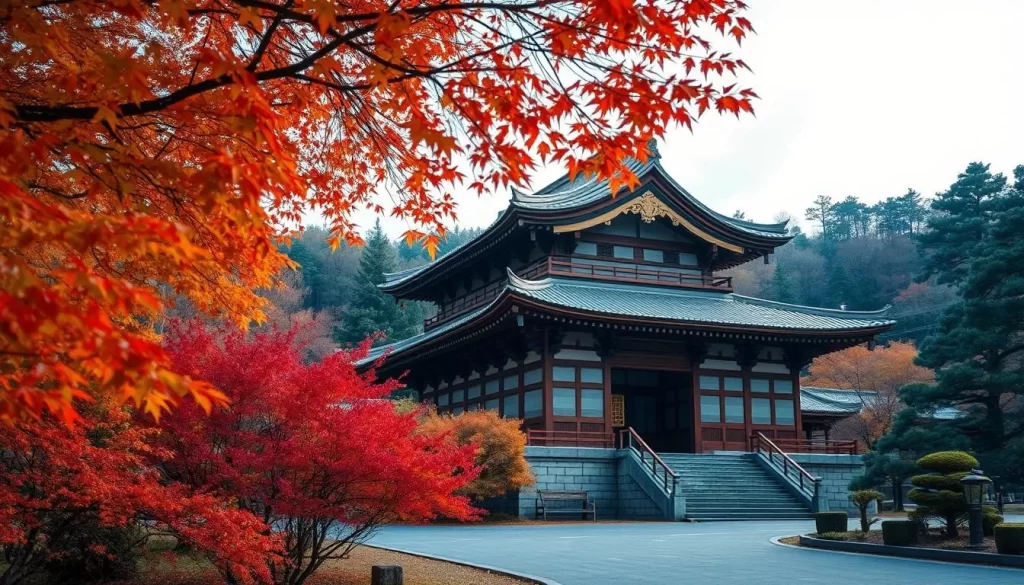
Eiheiji Temple, located in Fukui Prefecture, is the head temple of the Sōtō Zen sect and is known for its rigorous training, considered among the toughest for Zen monks in Japan. During autumn, the temple grounds are surrounded by vibrant fall foliage, creating a serene and breathtaking atmosphere.
- Experience the serene autumn celebrations at Eiheiji Temple, one of Japan’s most important Zen Buddhist temples.
- Marvel at the spectacular fall foliage that transforms the temple grounds into a canvas of red, orange, and gold.
- Learn about the special autumn ceremonies and rituals performed by Zen monks during this season of transition and reflection.
- Discover how the temple’s location amidst forested mountains creates one of the most breathtaking autumn viewing experiences in Japan.
The temple’s ancient trees and moss-covered paths enhance the spiritual significance of autumn in Zen Buddhism, a time of impermanence and natural beauty. Visitors can observe monks engaged in daily rituals, providing a unique insight into the temple’s sacred atmosphere.
Traditional Music and Performances at Fukui Festivals
Fukui Prefecture’s festivals are a treasure trove of traditional music and performances that await your discovery. As you experience these festivals, you’ll be treated to a rich cultural heritage that’s unique to the region.
The traditional instruments used in Fukui’s festivals, such as the shamisen, shinobue flute, and taiko drums, play a crucial role in setting the tone for the celebrations. These instruments are often accompanied by traditional dances and theatrical presentations, creating an immersive experience for visitors.
One of the fascinating aspects of Fukui’s festivals is the regional variation in music and performances. Different areas have their unique cultural influences, reflected in the music and performance styles. For instance, some festivals feature lively taiko drum performances, while others showcase more subdued, traditional dances.
Visitors can also participate in hands-on musical workshops or lessons, allowing them to gain a deeper appreciation for the traditional arts. By engaging with the local culture, you’ll develop a more nuanced understanding of the significance of music and performance in Fukui’s festivals.
Festival Food: What to Eat at Fukui Celebrations
As you explore Fukui Prefecture’s festivals, you’ll discover a world of flavors that are deeply rooted in local traditions and ingredients. The festivals in Fukui are a perfect blend of traditional culture and mouth-watering cuisine, making them a must-experience for any visitor.
The variety of street food available at these festivals is astounding, with everything from savory dishes to sweet treats. You can eat your way through the celebrations, sampling regional specialties that are often only available at specific times of the year.
Some of the highlights include Fukui’s famous seafood dishes, which feature prominently at coastal festivals. The use of seasonal ingredients ensures that the food offerings are always fresh and reflective of the region’s culinary heritage.
| Festival | Specialty Food | Season |
|---|---|---|
| Mihama Hiruga Underwater Tug-of-War | Seafood Skewers | Winter |
| Cherry Blossom Festivals Along Asuwa River | Sakura Mochi | Spring |
| Eiheiji Temple Autumn Celebrations | Vegetarian Cuisine | Autumn |
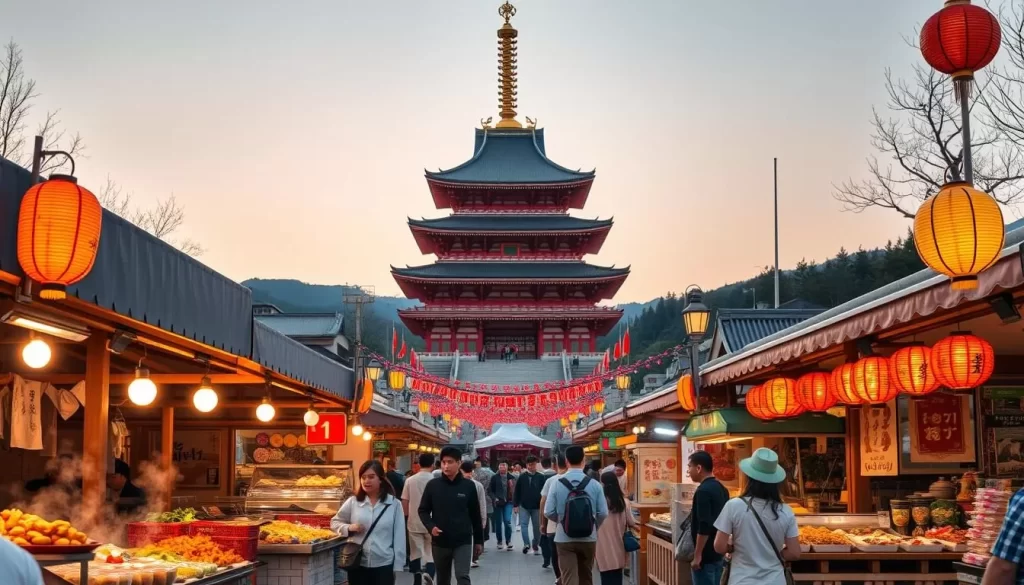
For visitors, understanding the etiquette of eating at Japanese festivals is helpful, including how to order, pay, and dispose of food waste. This enhances the overall experience, allowing you to fully immerse yourself in the local culture.
Religious Significance of Fukui’s Festivals
As you explore Fukui’s festivals, you’ll discover the profound religious significance that underpins these celebrations. Fukui’s festivals blend Shinto and Buddhist traditions, creating unique religious ceremonies that are both captivating and spiritually significant.
The spiritual purposes behind many festival rituals are multifaceted, ranging from purification ceremonies to prayers for prosperity. Local shrines and temples play a central role in organizing these traditional festivals, highlighting their importance in the religious calendar.
| Festival Element | Religious Significance |
|---|---|
| Processions | Symbolize the journey of deities or spirits |
| Costumes | Represent historical or mythological figures |
| Decorations | Often contain religious symbolism, such as sacred trees or ritual objects |
The role of priests, monks, and other religious figures is crucial in conducting festival ceremonies, ensuring the continuation of ancient traditions. Visitors can respectfully participate in or observe these religious elements, gaining a deeper understanding of Fukui’s cultural heritage.
Photography Tips for Capturing Festival Moments
To truly capture the spirit of Fukui’s festivals, visitors need to be prepared with the right photography techniques. Understanding the optimal camera settings for different festival conditions is crucial, whether it’s a bright daytime procession or an atmospheric night event.
When it comes to festival photography, etiquette is key. Knowing when to take photos and when to simply experience the moment is vital. For the best view, identify prime vantage points that don’t obstruct participants or other viewers.
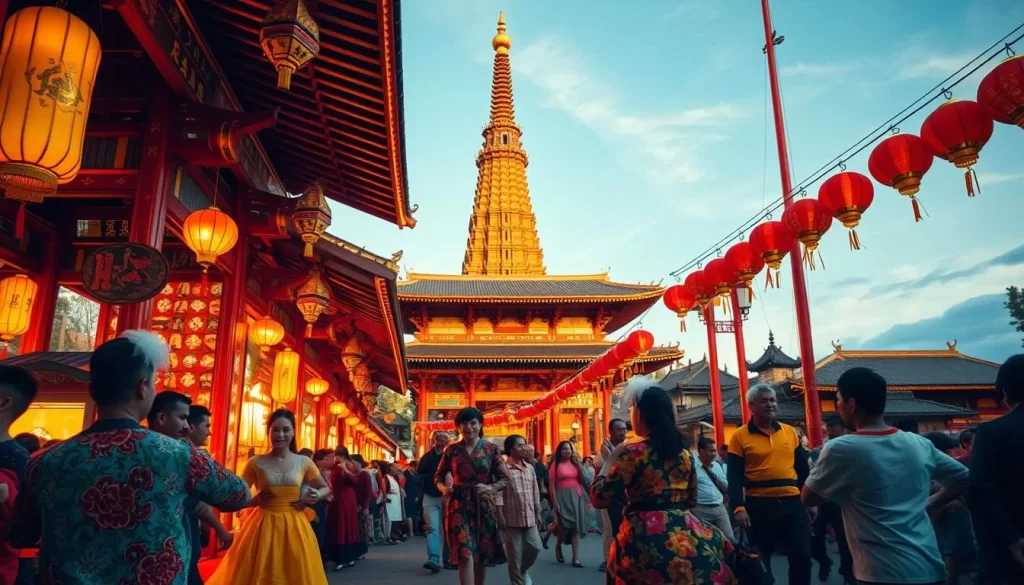
Capturing specific festival elements like fireworks, lanterns, and performances requires different techniques. For night events, adjusting your camera settings is essential for the best results.
| Festival Element | Recommended Camera Setting |
|---|---|
| Fireworks | Slow shutter speed, tripod |
| Lanterns | Medium to slow shutter speed |
| Performances | Fast shutter speed, continuous autofocus |
By mastering these techniques, you can enhance your experience and capture the essence of Fukui’s vibrant festival culture.
Accommodation Tips During Festival Seasons
As you plan your trip to Fukui during festival season, it’s essential to consider your accommodation options carefully. Visitors can choose from a variety of lodging types, including traditional ryokan inns, modern hotels, and budget-friendly guesthouses.
The area you choose to stay in can significantly impact your travel experience. For instance, staying near Eiheiji Temple allows you to fully immerse yourself in the temple’s autumn celebrations.
| Accommodation Type | Cost | Benefits |
|---|---|---|
| Ryokan Inns | Moderate to High | Traditional Experience, Local Cuisine |
| Modern Hotels | Moderate | Comfort, Amenities |
| Guesthouses | Low to Moderate | Budget-friendly, Local Interaction |
To ensure a smooth stay, it’s advisable to book your accommodations well in advance, especially for major festivals.
Transportation Guide to Festival Locations
Getting to Fukui Prefecture’s vibrant festivals is easier than you think, with various transportation options available. You can reach Fukui Prefecture from major Japanese cities like Tokyo, Osaka, and Kyoto via efficient train services, including the Hokuriku Shinkansen line, which significantly reduces travel time.
Within Fukui, the local transportation network includes trains, buses, and rental car options. During major festivals, special transportation arrangements are often made, such as shuttle buses and extended service hours, to accommodate the large number of visitors.
| Transportation Method | Advantages | Considerations |
|---|---|---|
| Train | Efficient, convenient | Potential crowds during peak festival times |
| Bus | Cost-effective, accessible | Less frequent services compared to trains |
| Rental Car | Flexibility, scenic routes | Limited parking, potential traffic congestion |
You can also consider walking or renting bicycles for shorter distances, especially between nearby festival venues. Regional transportation passes can offer significant savings for your festival tour. Understanding local transportation schedules and navigating stations is relatively straightforward, even with limited Japanese language skills. For visitors with mobility challenges, many transportation services offer accessibility options.
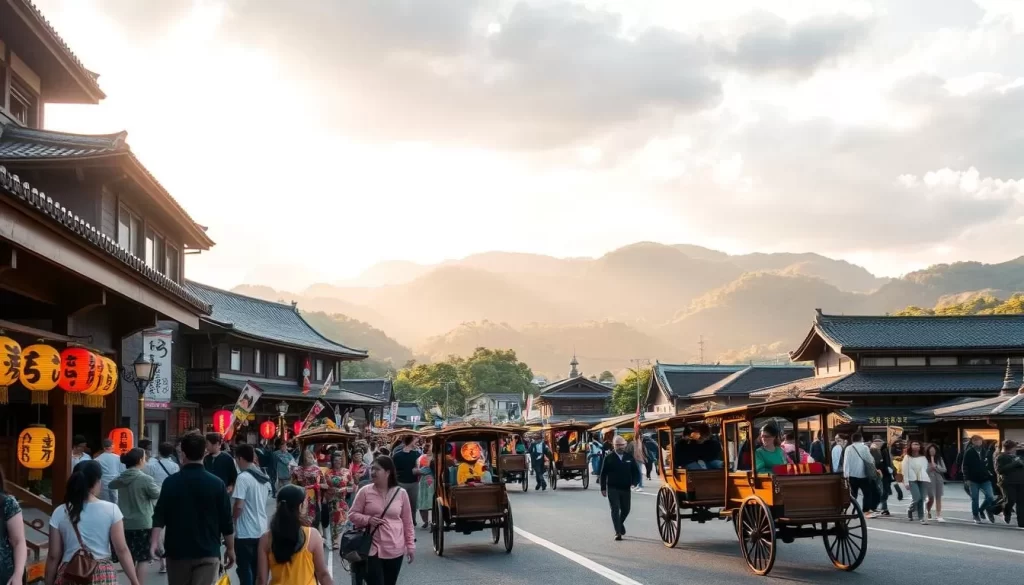
Cultural Etiquette for Festival Visitors
As you prepare to immerse yourself in Fukui’s vibrantfestivals, understanding the localcultureand etiquette is crucial for a meaningfulexperience. When attending these events, it’s essential to be mindful of the dress code, as it varies depending on the type of festival. For instance, wearing ayukata(summer kimono) might be appropriate during certain summer festivals, adding to the festive atmosphere.
When entering certain spaces or religious sites during thefestivals, removing your shoes is a sign of respect. Understanding this custom will help you navigate these situations smoothly. Additionally, being aware of proper behavior at religious sites and during ceremonial portions of the events is vital.
To fully enjoy theexperience, it’s also important to understand the etiquette surrounding food and drink consumption, including proper waste disposal. Being respectful ofpeoplearound you, including performers and local attendees, enhances the overall atmosphere. By embracing these cultural norms, you’ll not only enrich your visit but also show respect for the localtraditionandpeople. This thoughtful approach will make your visit to Fukui’sfestivalsa memorable one for both you and the locals.
Conclusion: Embracing Fukui’s Festival Spirit
The festivals of Fukui Prefecture are a testament to the region’s deep-rooted traditions and its people’s passion for preserving cultural heritage. As you reflect on the diverse festivals throughout the year, you’ll find that they offer visitors a unique experience that goes beyond typical tourist attractions.
By participating in these local celebrations, you gain a deeper understanding of culture and create lasting memories. Whether you’re planning a travel itinerary focused on festivals or looking to enrich your appreciation of cultural celebrations, Fukui’s festivals are an ideal destination. Embracing the spirit of these events can enrich your perspective, fostering a deeper connection to the community and its tradition.
The above is subject to change.
Check back often to TRAVEL.COM for the latest travel tips and deals.
